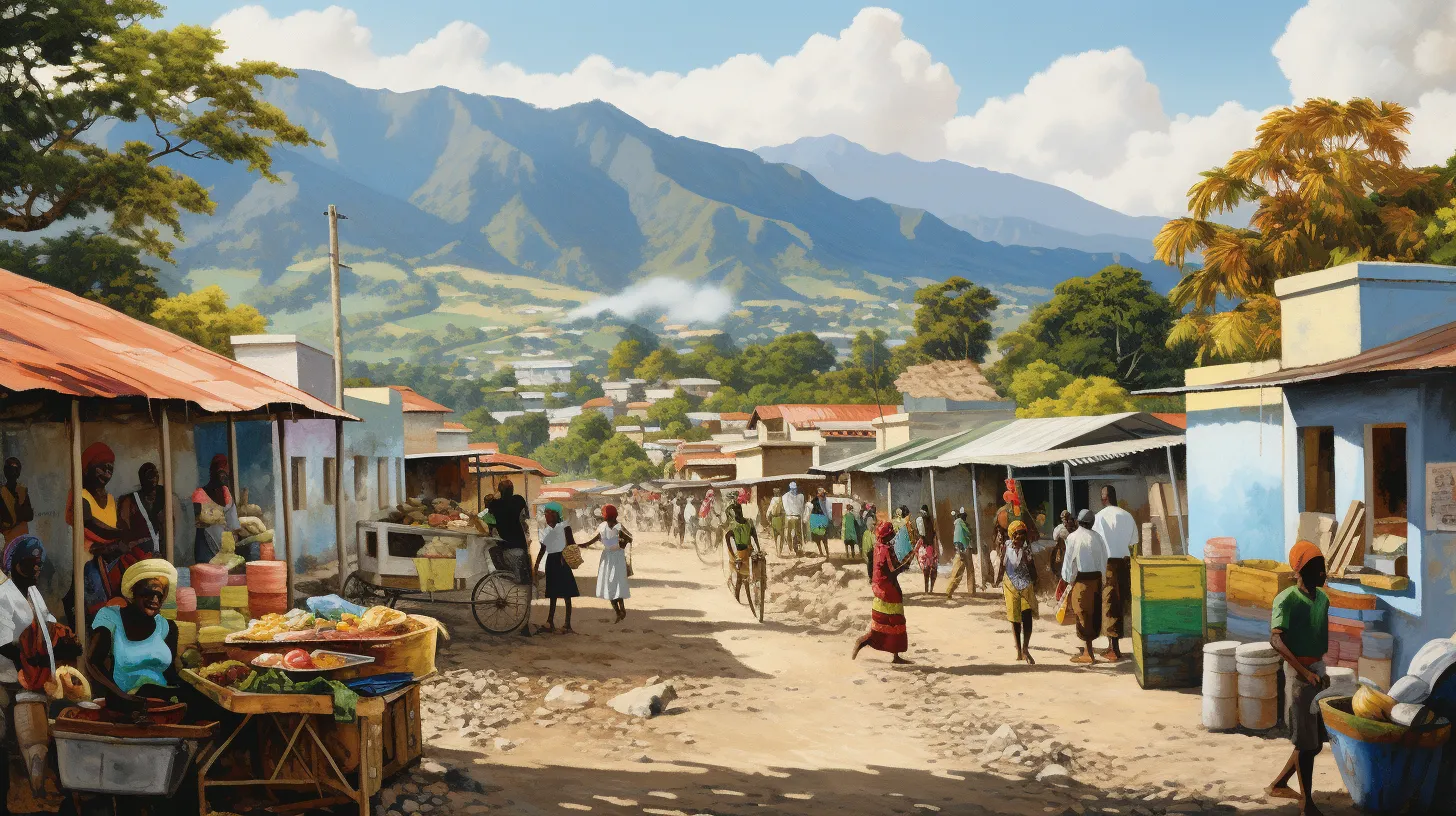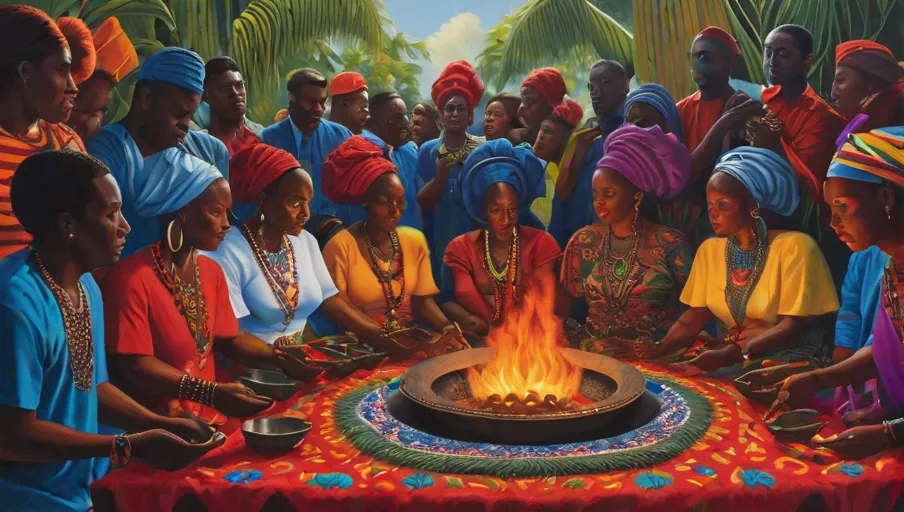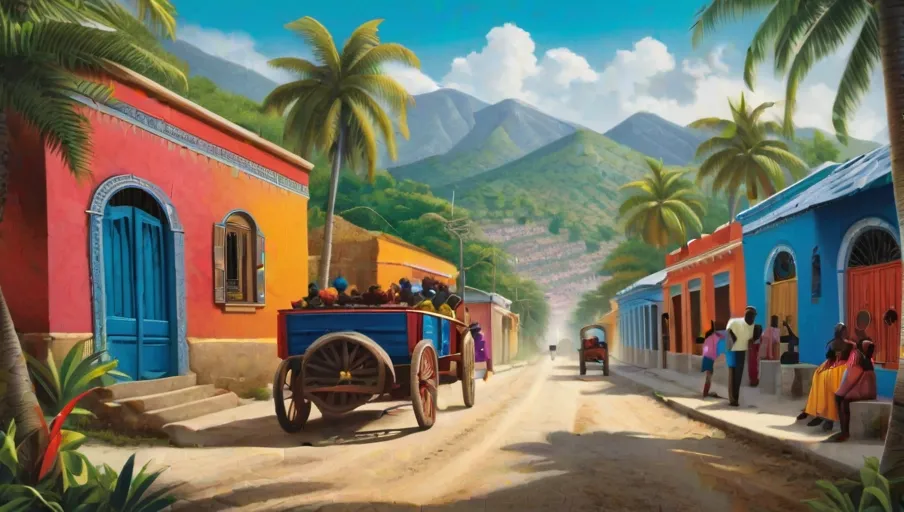Haitians can trace their African roots to a variety of regions, mainly from West Africa. The majority of Haitian ancestors were brought from countries such as Senegal, Guinea, Sierra Leone, Benin, and the Congo due to the transatlantic slave trade.
However, it’s important to note that Haitians have a diverse heritage with influences from countries like Cameroon, Togo, Nigeria, and Ghana, contributing to the rich and varied African ancestry of the Haitian people.
This complex history has resulted in a diverse and multifaceted heritage for Haitians, reflecting the intricate tapestry of African roots in Haiti.
The Transatlantic Slave Trade and Haitian Ancestry
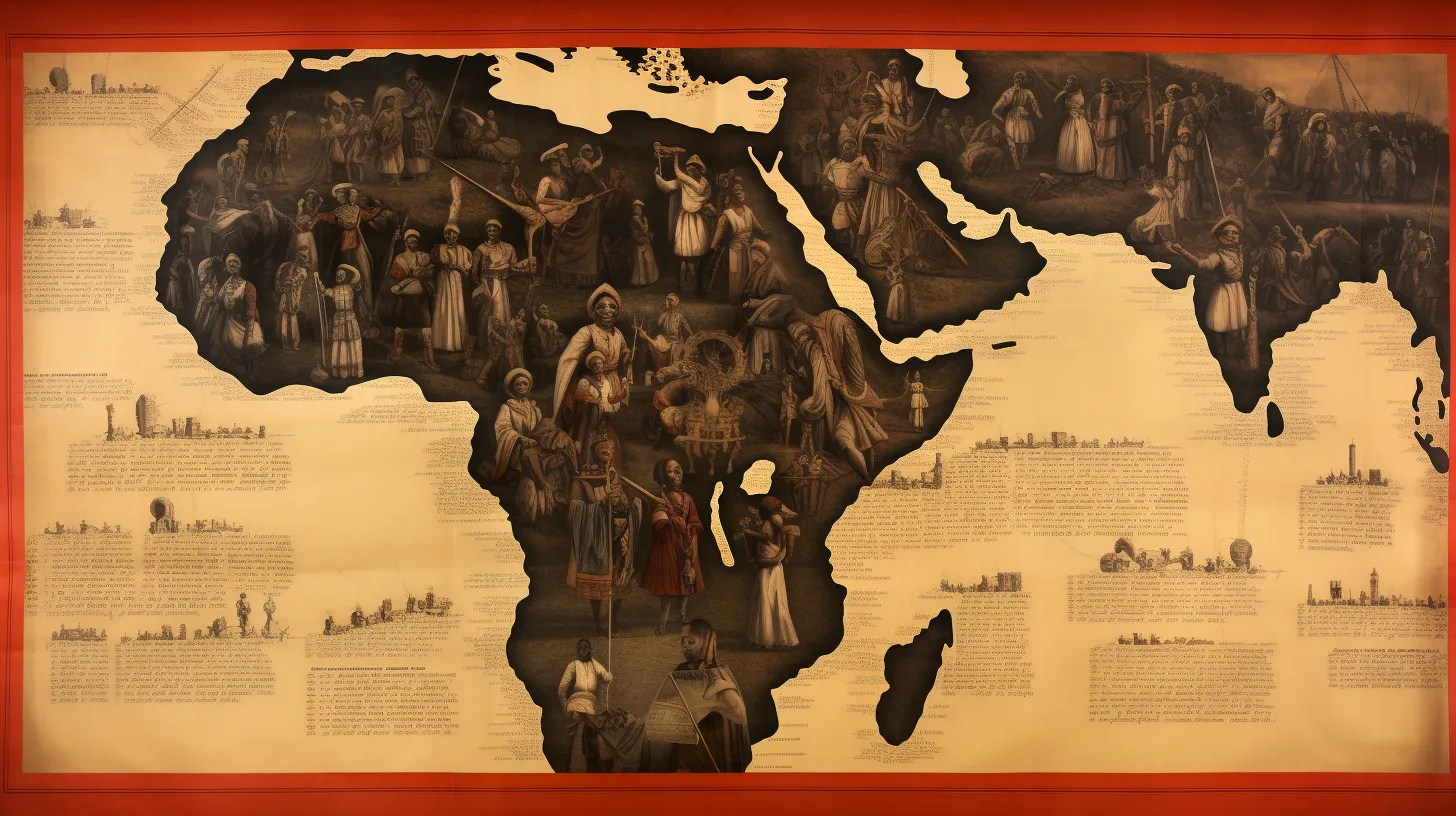
The majority of Haitians are descended from African slaves who were forcibly transported to the Caribbean from various regions of West Africa through the transatlantic slave trade. This brutal trade network involved the forced migration of millions of Africans to the Americas, with Haiti being a significant destination.
The demand for labor in the plantation economy led to the mass importation of African slaves to Haiti. Haitians have mixed African origins, with significant ancestry from regions such as Cameroon/Congo, Benin/Togo, Nigeria, and Ghana, as well as noticeable Senegal and North African ancestry.
The transatlantic slave trade played a significant role in supplying African slaves to Haiti, shaping the genetic and cultural makeup of the Haitian population. The legacy of this trade continues to influence the social, cultural, and economic landscape of Haiti, underscoring the profound impact of this historical atrocity.
African Regions Influencing Haitian Heritage

A significant number of Haitians trace their ancestry back to various regions in West Africa, shaping their cultural heritage and genetic makeup. Among the primary regions influencing Haitian heritage are Central Africa, with significant ancestral contributions from Cameroon/Congo, Benin/Togo, and Nigeria.
Central African ancestry is particularly noteworthy compared to other parts of the Afro-Diaspora. This diverse heritage reflects the complex history of the transatlantic slave trade, with individuals of Haitian descent sharing many African roots with other Afro-descended populations in the Americas.
The influence of Central Africa on Haitian heritage is evidenced by the higher frequencies or proportions of Cameroon/Congo and Benin/Togo ancestry, highlighting the rich and varied tapestry of African origins that have contributed to the formation of Haitian identity.
Understanding the Diversity of Haitian African Origins
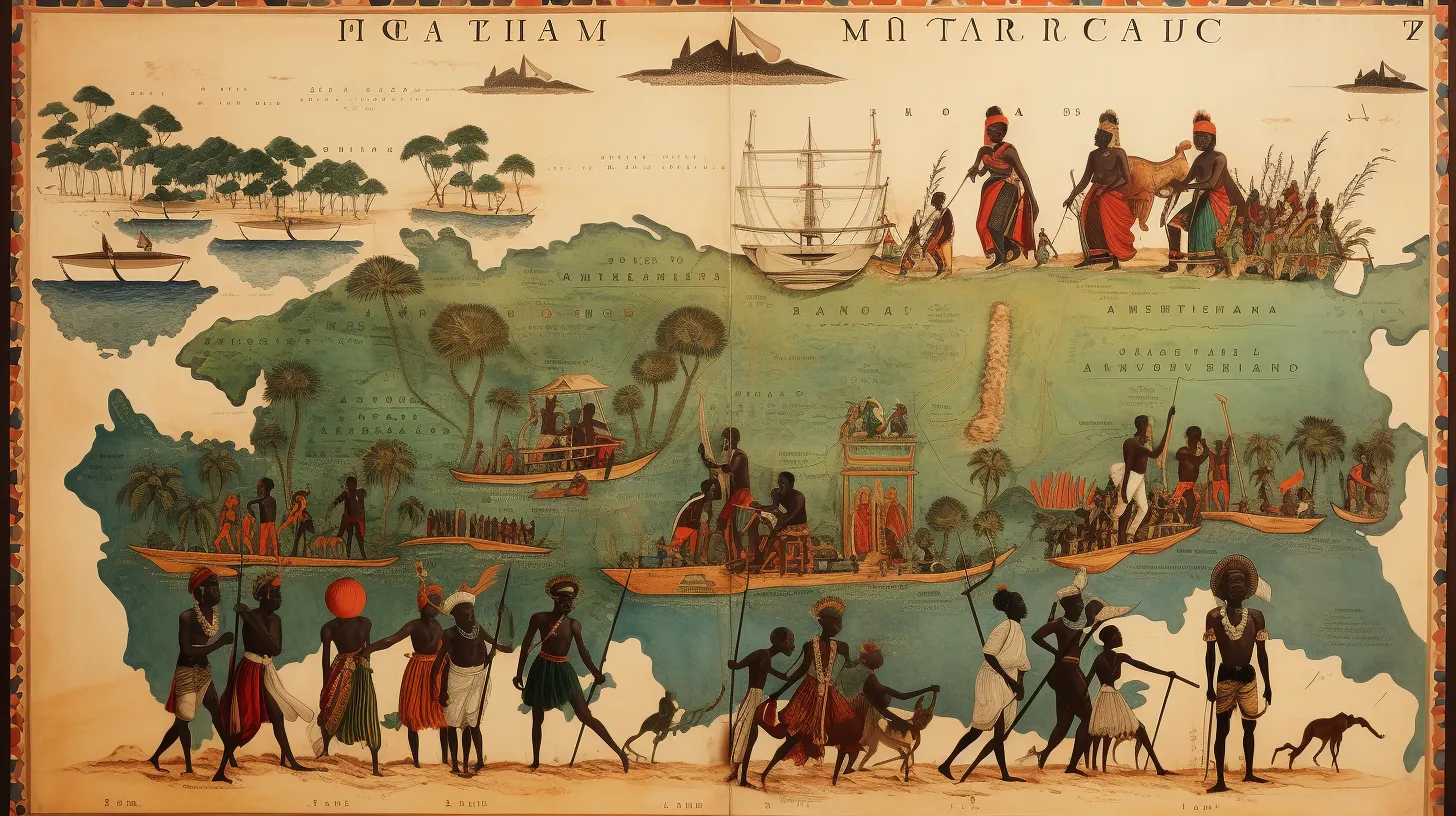
An extensive analysis of Haitian African origins reveals a diverse and complex ancestry, encompassing a mix of West, Central, and North African heritages. The Haitian population’s African roots stem from various regions, including Cameroon/Congo, Benin/Togo, Nigeria, Ghana, Ivory Coast, Senegal, and North Africa, with significant Yoruba, Igbo, and Northern Nigerian ancestry.
This diverse heritage is a result of the transatlantic slave trade, which brought individuals from different ethnic groups and language backgrounds to Haiti. The regional breakdown of Haitian African ancestry indicates a blend of Central and Lower Guinean origins, reflecting the varied African roots of the population.
It’s important to recognize the complexity and diversity of Haitian African origins, as it contributes to the rich cultural tapestry of Haiti and the broader African American diaspora. This diversity also has implications for understanding the shared heritage with neighboring countries like the Dominican Republic.
Cultural Impact of African Roots on Haitian Identity

Coming from diverse African origins, Haitians have embraced and integrated their cultural heritage into the fabric of their national identity. The influence of their African roots is evident in various aspects of Haitian life, including language, music, dance, religion, and cuisine.
The vibrant and rhythmic sounds of traditional Haitian music, such as rara and compas, reflect the fusion of African musical styles with indigenous and European influences.
Additionally, Haitian religious practices, such as Vodou, demonstrate the preservation of African spiritual beliefs and traditions.
The resilience, strength, and communal values that are deeply ingrained in Haitian culture can be traced back to their African heritage.
This cultural fusion hasn’t only shaped the unique identity of Haiti but has also contributed to the broader cultural tapestry of the Caribbean and influenced African American culture.
Tracing Haitian Ancestry Back to Africa

Tracing their ancestry back to Africa, Haitians have a diverse and rich heritage originating from various regions across the continent. The majority of Haitian slaves were forcibly brought from West Africa, particularly from areas like Senegal, Guinea, Sierra Leone, Benin, and the Congo. This historical context has resulted in Haitians having mixed African origins, with significant ancestry from regions such as Cameroon/Congo, Benin/Togo, Nigeria, and Ghana/Ivory Coast.
The African ancestry of Haitians shows a wide range of 90%-99%, with individual variation and non-African admixture present. It’s important to note that Haitians share many African roots with other Afro-descended populations in the Americas, with higher frequencies of Cameroon/Congo and Benin/Togo ancestry.
The diverse African heritage of Haiti has profoundly influenced the cultural, linguistic, and societal aspects of the country.

